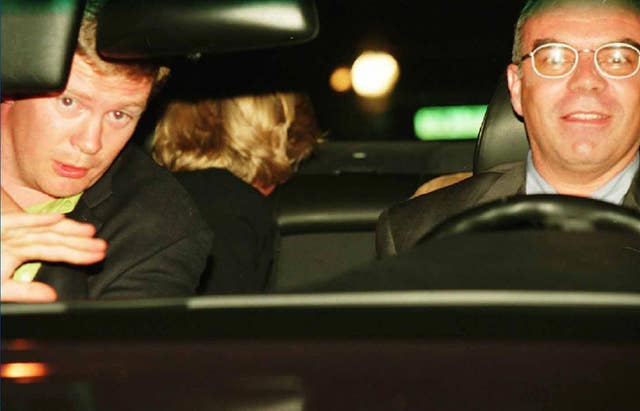
A Channel 4 documentary has explored the French police investigations that followed the death of Diana, Princess of Wales.
Diana was 36 when she was killed in a car crash in Paris on August 31 1997 and her death has continued to attract conspiracy theories over the decades.
The first episode of Investigating Diana: Death In Paris follows the 1997 French Brigade Criminelle inquiry featuring interviews with detectives – some of whom are speaking for the first time.

Eric Gigou, of the Brigade Criminelle, said: “We reconstructed the route they took, tried to discover all the witnesses, anyone who could have seen or heard anything near or far, people who might have crossed paths with the car, seen motorcycles, seen something in the minutes or seconds before the crash, perhaps at the moment of the impact or after the impact.
“For us it is a race against time from the moment we were given the case, because human memory is volatile and over time memories fade.”
The episode explores the role of driver Henri Paul, who was deputy head of security at the Ritz, in the fatal accident.
It showed the front pages of many newspapers at the time claiming Mr Paul was three or four times over the drink-drive limit.
Mr Gigou said: “In France, our investigations are secret, nothing is revealed to the press. Every day there were articles with pseudo-revelations, some magazines were living off these ‘scoops’.”

Claude Garrec, who had been best friends with Mr Paul for 23 years, told how the national media treated Mr Paul “like a drunk” following his death.
He said: “It was very difficult for me but it was worse for his parents. The press came to film our grief. They believed Henri was to blame. I don’t see it that way.”
Mr Gigou said: “When you look at the CCTV from the Ritz, Mr Paul is behaving normally. He does not stagger, he seems normal. If Henri Paul had stumbled or been incoherent he would never have got behind the wheel.
“Did someone ask Henri to drive faster, I don’t know. No one knows.”

Martine Monteil, head of the Brigade Criminelle, added: “I think Mr Paul’s job was his life.”
The episode also hears from two eye-witnesses, a firefighter and emergency medic at the scene and from members of the paparazzi, who were heavily criticised at the time of Diana’s death.
Jacques Langevin, who took photographs of Diana and Dodi Al-Fayed in the car outside of the Ritz before their death, said: “Whether photographers chased the car or not, that’s not what caused the accident, it’s not true.”
The four-part series recounts the dual inquiries into the incident – the first by the French Brigade Criminelle in 1997 and the second by the Metropolitan Police in 2004.
It is directed by Will Jessop and Barnaby Pell, and made by Sandpaper Films, which was also behind Diana, 7 Days – about the week after the princess’s death.
Another documentary charting Diana’s life, The Princess, will air this month after attracting controversy for including footage from her 1995 Panorama interview with Martin Bashir.
The Duke of Cambridge has previously called for the footage of his mother never to be shown again and the BBC has vowed not to broadcast or licence it.
The second instalment of Investigating Diana: Death in Paris will air on August 28 on Channel 4.


Why are you making commenting on The National only available to subscribers?
We know there are thousands of National readers who want to debate, argue and go back and forth in the comments section of our stories. We’ve got the most informed readers in Scotland, asking each other the big questions about the future of our country.
Unfortunately, though, these important debates are being spoiled by a vocal minority of trolls who aren’t really interested in the issues, try to derail the conversations, register under fake names, and post vile abuse.
So that’s why we’ve decided to make the ability to comment only available to our paying subscribers. That way, all the trolls who post abuse on our website will have to pay if they want to join the debate – and risk a permanent ban from the account that they subscribe with.
The conversation will go back to what it should be about – people who care passionately about the issues, but disagree constructively on what we should do about them. Let’s get that debate started!
Callum Baird, Editor of The National
Comments: Our rules
We want our comments to be a lively and valuable part of our community - a place where readers can debate and engage with the most important local issues. The ability to comment on our stories is a privilege, not a right, however, and that privilege may be withdrawn if it is abused or misused.
Please report any comments that break our rules.
Read the rules here